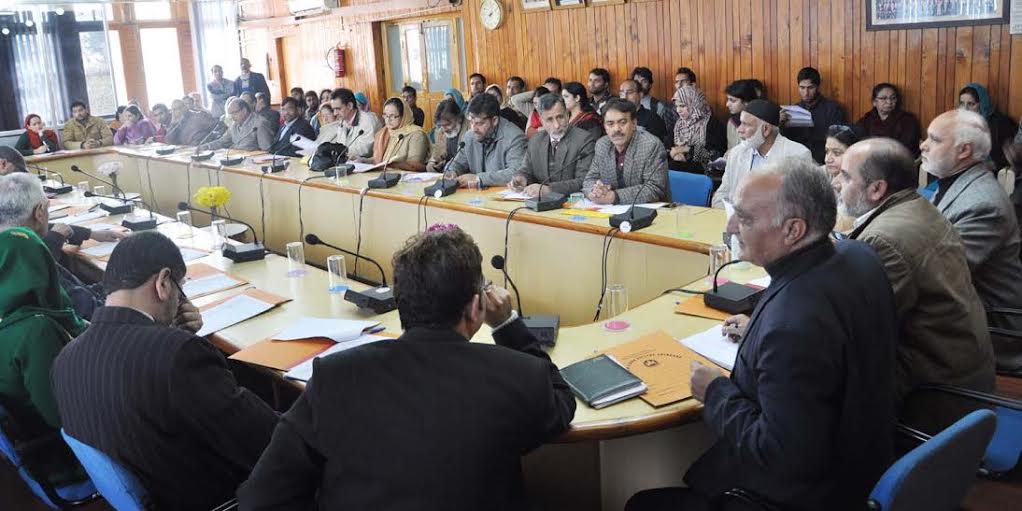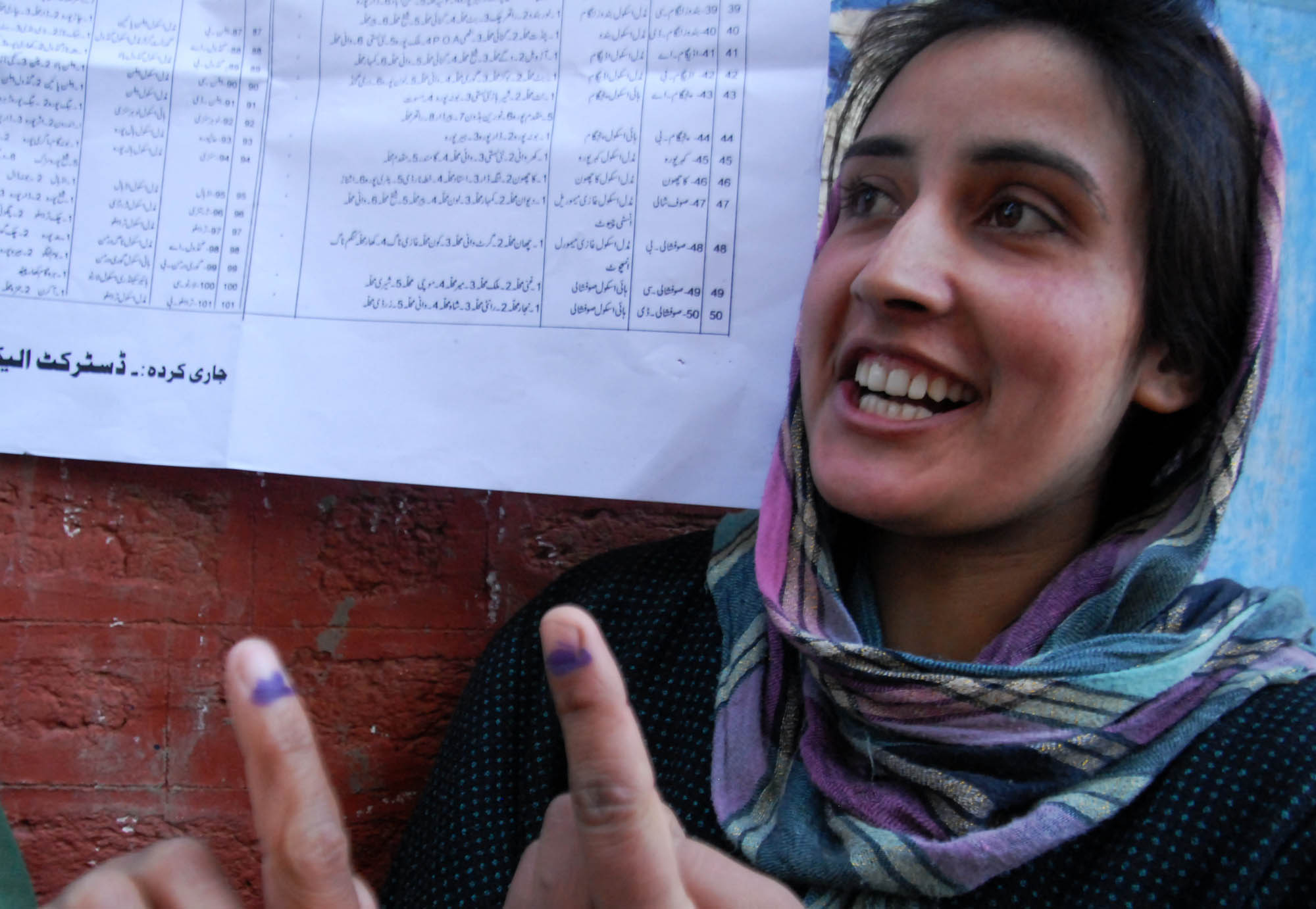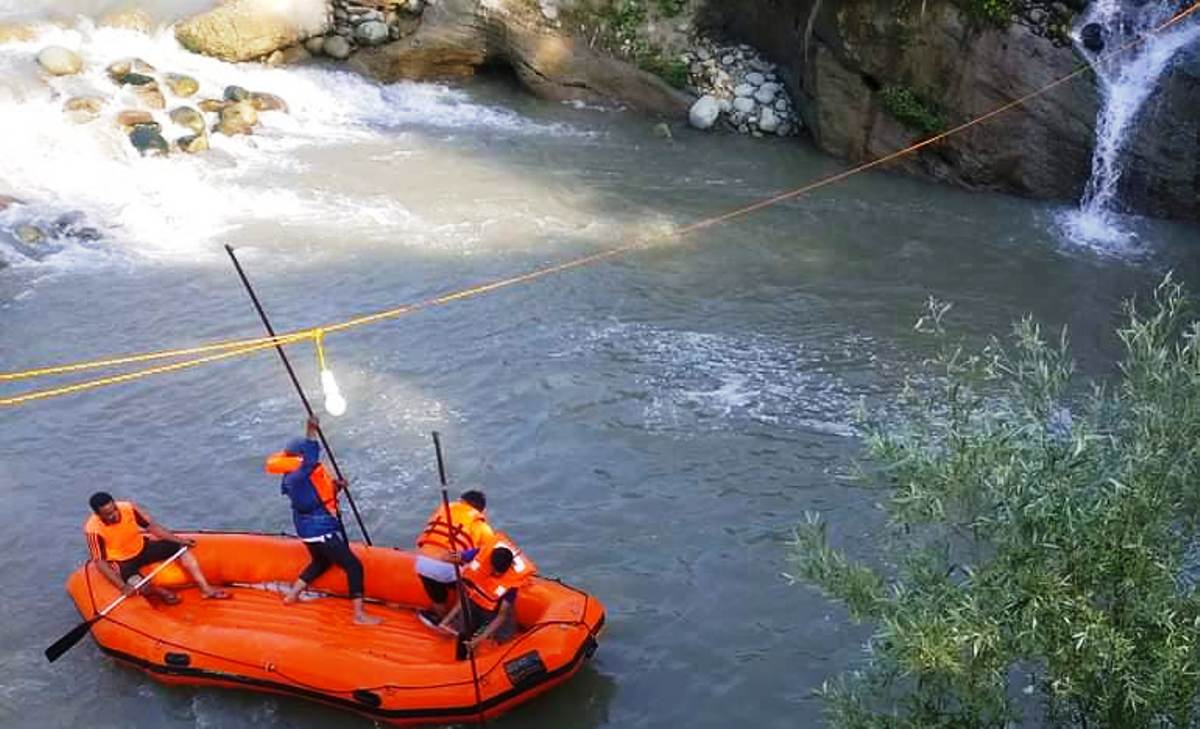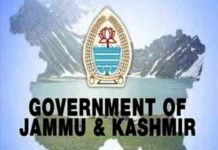KL NEWS NETWORK
SRINAGAR
Academics and students on Tuesday deliberated on the New Education Policy (NEP) proposed to be framed by the Union Ministry of Human Resource Development (MHRD).
The Consultative Committee on Higher Education took inputs from students and teachers on the proposed policy for their consolidation and onward submission to the MHRD, a University of Kashmir statement said Tuesday evening.
According to the Ministry, the consultation process is aimed to ensure that “an inclusive, participatory and holistic approach is undertaken, which takes into consideration expert opinions, field experiences, empirical research, stakeholder feedback, as well as lessons learned from best practices.”
Consultative Committees have been formed right from Panchayat, Block, District, State, Regional and National levels on the NEP.
2.5 lakh meetings are proposed to be held at Gram Panchayat level across the country, 6000 at Block level, 676 at District level, 100 at State level and 12 at National level before the Policy is considered or adopted.
Earlier, KU’s Dean Academic Affairs, Prof Mohammad Ashraf Wani and Prof Tariq Kawoosa, Director Colleges J&K, provided an overview of the latest initiatives taken by the MHRD in “bringing a paradigm shift” in the policy for Higher Education.
The meeting was attended by several Deans and Heads of Departments, professors and student representatives to provide their opinion with regard to the Policy in line with the MHRD guidelines.
During the meeting, a questionnaire based on 20 broad themes targeted at reforming the system of higher education was circulated among the participants who put forth their valuable suggestions and responses.
Some of the consultation themes involved are: improving quality of regulation, ranking of institutions and accreditations, pace setting roles of central institutions, improving state public universities, integrated skill development in higher education, promoting online courses, opportunities for technology-enabled learning, addressing regional disparity, bridging gender and social gaps, linking higher education to society and sustaining student support system, financing higher education, promoting research and innovation and internationalization of higher education.
















